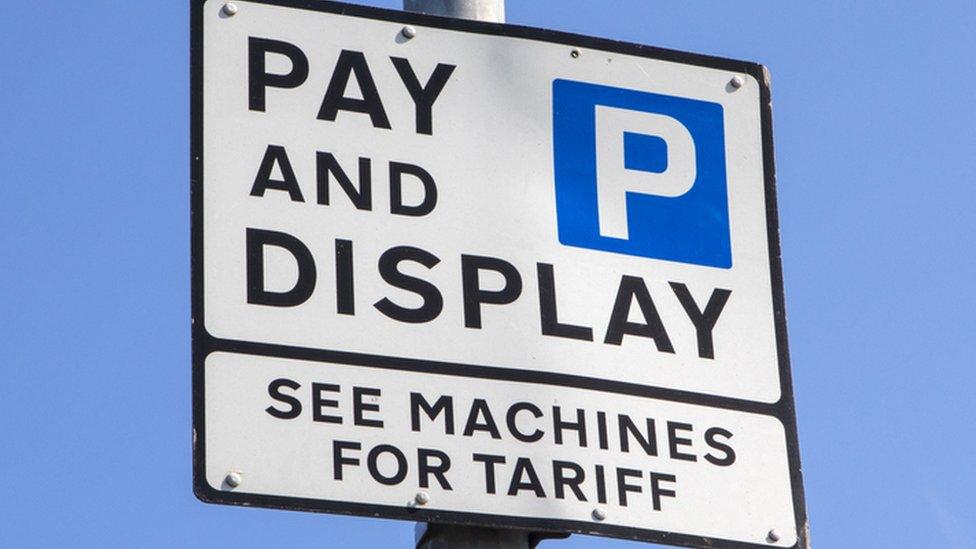MPs call for pavement parking ban across England
- Published
- comments

Parking on pavements should be banned across England, according to MPs.
The Commons' Transport Committee has called for a new law and an awareness campaign on the impact it has, especially for those with mobility or visual impairments.
The Department for Transport said it had concluded a review into the issue and would be announcing its next steps "over the coming months".
But the committee said government action had "been slow".
Its chair, Labour MP Lilian Greenwood, said: "A couple of years ago a young wheelchair user came to one of my coffee mornings... asking me to do something about pavement parking because it stopped him getting round his own neighbourhood.
"[This report] has recommended action that will make a real difference."
Pavement parking is already banned in London - with those who flout the rules facing a fine.
The Scottish government has already banned pavement parking in its Transport (Scotland) Bill, and the Welsh government has set up a task force to look at the issue.
The committee spoke to people with visual and mobility impairments, as well as carers and parents, who suffer as a result of pathways being blocked - being forced into the road with wheelchairs, pushchairs or small children, for example.
It said in its report: "Pavement parking can have a considerable impact on people's lives and their ability to safely leave their homes.
"People are at risk of social isolation if they feel unable to leave their homes safely or are physically prevented from doing so.
"While pavement parking can be a necessity in some areas, it should not be allowed to happen where it has a significant adverse impact on people's lives."
Risk of injury
The committee has made a list of recommendations, including a public awareness campaign, improvements to Traffic Regulation Orders - which could be used to enforce a ban - and a new civil offence for pavement parking.
And they have gained the support of charities, including Guide Dogs - which is running its own campaign called Streets Ahead - and Living Streets, the UK charity promoting everyday walking.
Stephen Edwards, policy and communications director for Living Streets, said: "Cars parked on pavements force people with wheelchairs, parents with buggies and those living with sight loss into the carriageway and oncoming traffic.
"The committee is right to draw attention to the impact of pavement parking on loneliness. Many older adults we speak to feel stuck in their homes because they're not able to navigate their local pavements.
"People continue to be put at risk of injury and isolation with every day of inaction that passes."
Allow X content?
This article contains content provided by X. We ask for your permission before anything is loaded, as they may be using cookies and other technologies. You may want to read X’s cookie policy, external and privacy policy, external before accepting. To view this content choose ‘accept and continue’.

A Department for Transport spokeswoman said: "We are committed to ensuring that our roads work for everyone, but are aware that pavement parking can cause real problems for a variety of road users.
"This is why the department recently concluded a review to better understand the case for changing the law, and will be announcing our next steps over the coming months."
- Published29 June 2019
